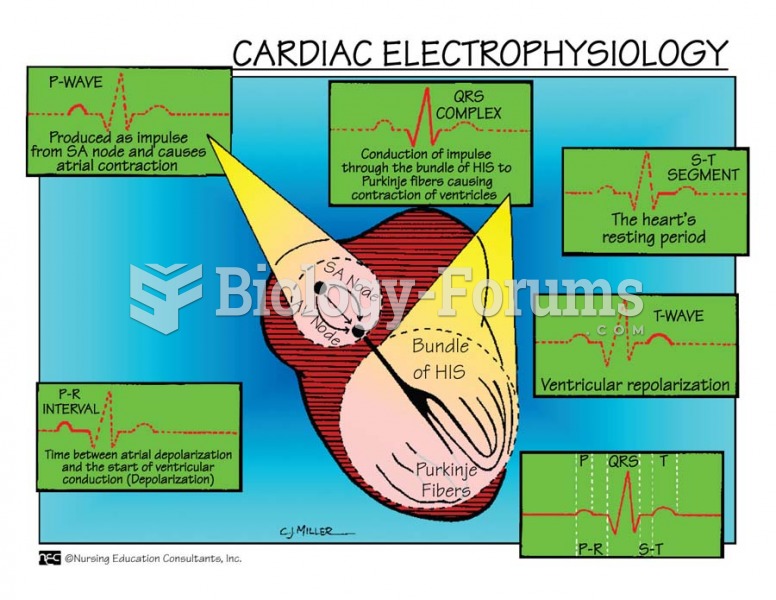|
|
|
Your chance of developing a kidney stone is 1 in 10. In recent years, approximately 3.7 million people in the United States were diagnosed with a kidney disease.
More than 30% of American adults, and about 12% of children utilize health care approaches that were developed outside of conventional medicine.
Asthma cases in Americans are about 75% higher today than they were in 1980.
In the United States, an estimated 50 million unnecessary antibiotics are prescribed for viral respiratory infections.
Blastomycosis is often misdiagnosed, resulting in tragic outcomes. It is caused by a fungus living in moist soil, in wooded areas of the United States and Canada. If inhaled, the fungus can cause mild breathing problems that may worsen and cause serious illness and even death.
 Tumor marker analysis of a patient with no evidence of disease monitored for tumor recurrence. The ...
Tumor marker analysis of a patient with no evidence of disease monitored for tumor recurrence. The ...
 Apply oil or lotion to the entire leg. Include hip if performing massage to hip region as part of ...
Apply oil or lotion to the entire leg. Include hip if performing massage to hip region as part of ...





